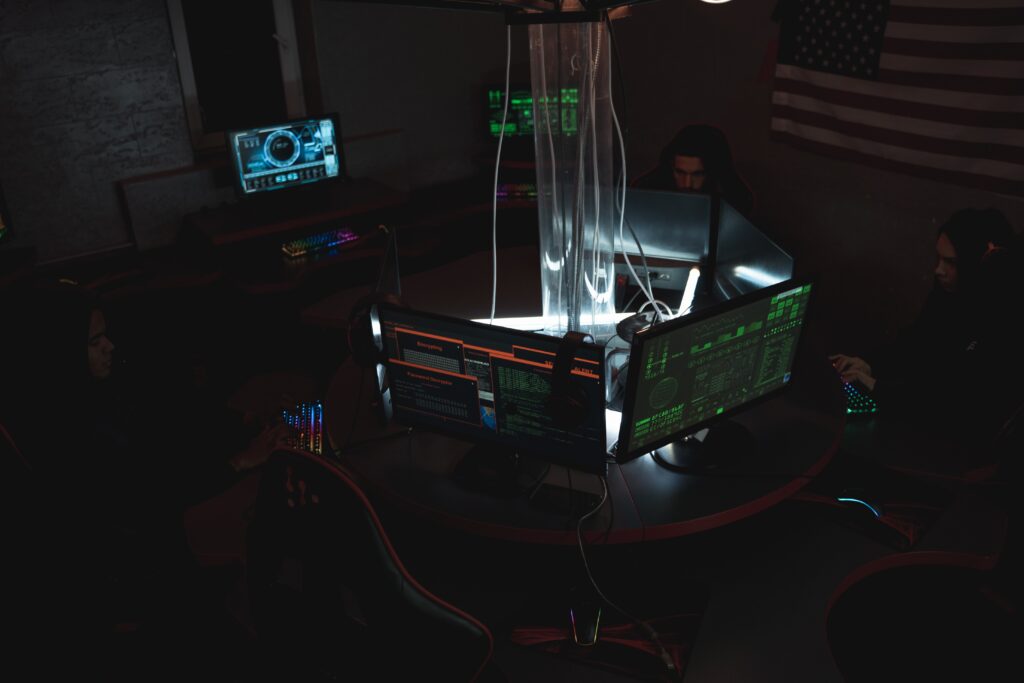In February 2023, the US military's Special Operations Command (SOCOM) faced an investigation regarding a large sensitive US military emails spill online that involved a sizeable amount of unclassified data. This was after cybersecurity researcher Anurag Sen stumbled upon a data leak that spilled a bunch of unclassified US military emails all over the internet.
From Department of Defense data breaches and US military whistleblowers to the general public at large, this incident had everyone buzzing about the security of US military email systems and the potential exposure of US military secrets. Let's dive into these wild US military leaks and explore their implications on national security.
Key Takeaways:
- In February 2023, a major leak of unclassified US military emails occurred when an unsecured server was discovered online. Anyone could access the emails without a password.
- The leak came from Special Operations Command (SOCOM) and exposed years worth of sensitive information about military contracts and operations.
- This incident raises serious concerns about the security of US military communications and the potential exposure of secrets.
- Previous major leaks like Chelsea Manning's 2010 WikiLeaks disclosure have sparked debates about transparency, national security, and freedom of information.
- Cyberattacks from state-sponsored groups continue to target US military networks to steal secrets. Robust cybersecurity is critical.
- Protecting military secrets is vital to maintain strategic advantages over adversaries, safeguard troops, fortify alliances, defend technology, and prevent intelligence gaps.
How Did Sensitive US Military Emails Spill Online And What Went Wrong?
The mind-boggling military email leak was confirmed by SOCOM spokesperson Ken McGraw.
In Fact: What was most shocking is that anyone with the server's IP address could access US military secrets sent via email without even needing a password! This server was supposedly hosted on Microsoft's ultra-secure Azure government cloud, designed to protect sensitive but unclassified data.
Sen, the eagle-eyed researcher, shared some jaw-dropping samples of the leaked military emails. We're talking years worth of sensitive information, including details about US military contracts and requests from Department of Defense employees.
While they finally were able to lock the proverbial door and secure the server, the damage to national security might already be done, and that's a real cause for concern.
Why Did This US Military Email Leak Have Everyone In A Frenzy?
We're talking about a Department of Defense email server, one of the most critical communication channels within the US military, exposing sensitive information and US military secrets to anyone in the world with an internet connection.
The US military leak is reported to have started on February 8, leaving a considerable amount of time for potential exposure and unauthorized access to sensitive information.
The big question on everyone's mind, however, is whether the US military was hacked or accessed by unauthorized personnel during the two-week period when the server was vulnerable and if US military secrets were leaked.
Potential Implications Of These US Military Email Leaks
The leaked Department of Defense email data, which amounted to a whopping three terabytes (equivalent to dozens of standard smartphones' storage), predominantly belonged to SOCOM. But things get more real.
SOCOM is responsible for some serious business, including counter terrorism and hostage rescues. A US military leak from this server may expose even the most secret military units and operations in the country. The recent data exposure serves as a glaring example of how even powerful organizations can unwittingly expose sensitive internal data due to inadequate configuration of their computer servers.
Some Of The Biggest US Military Leaks Of All Time

This latest US military email leak is not the first time we have seen sensitive information make its way into the public eye. Let us take a look at some of the US military and Department of Defense data breaches and how some of the most secret military unit operations were leaked to the internet.
Operation Buckshot Yankee (2008)
In 2008, the US military found itself in the midst of a major breach, popularly known as Operation Buckshot Yankee. This gripping cyber espionage campaign, orchestrated by a cunning foreign intelligence agency, had one target in its sights—the highly classified Central Command of the US military.
Picture a high-stakes cat-and-mouse chase where the attackers skillfully infiltrated the impenetrable walls of classified military networks. Their prize? A gold mine of US military secrets, including strategic plans, operational secrets, and potentially compromising intelligence.
The attackers managed to breach classified military networks, gaining access to a lot of sensitive information. This US military leak served as a stark reminder of the persistent and evolving threat posed by nation-state actors seeking to infiltrate and compromise the country's most vital systems and secrets.
Project Aurora (2009)
Project Aurora, which unfolded in 2009, was a masterful attack orchestrated by state-sponsored Chinese hackers, with defense contractors and industry networks in their crosshairs. The US military leak shook the country to its core by exposing significant vulnerabilities in its cybersecurity defenses.
The breach exploited weaknesses in the military's systems, granting unauthorized access to sensitive US military secrets and intellectual property. The stolen data encompassed cutting-edge military technologies, research and development plans, and proprietary information from defense contractors.
The revelation of Project Aurora forced the US military to confront the reality of cyber threats posed by sophisticated adversaries and propelled them to reevaluate and fortify their cybersecurity measures.
GhostNet Cyber Espionage (2009)
GhostNet, a cyber espionage network discovered in 2009, infiltrated computer networks worldwide, including those of the US military. This vast cyber espionage operation, attributed to Chinese state-sponsored actors, targeted governments, embassies, and military installations.
The attackers used sophisticated social engineering techniques, including spear-phishing emails, to gain access to sensitive information. GhostNet's activities revealed the extent to which US military leaks were probable and how networks and sensitive communications were at risk from well-organized and politically motivated cyber espionage campaigns.

Chelsea Manning and WikiLeaks (2010)
In 2010, the world witnessed one of the most significant and controversial US military leaks in modern history.
Chelsea Manning, a US Army intelligence analyst at the time, made the bold decision to leak classified US military secrets and diplomatic documents to the online organization WikiLeaks. The US military whistleblower's actions exposed a mound of sensitive information that had far-reaching implications.
What US Military Secrets Were In The Documents?
This US military leak had documents containing thousands of US military field reports, revealing detailed accounts of US military operations in Iraq and Afghanistan. Reports gave an unprecedented glimpse into the realities of war, exposing incidents of civilian casualties, abuse of detainees, and questionable military tactics.
The US military leaks also contained diplomatic cables that exposed private conversations and assessments made by diplomats with foreign governments, shedding light on diplomatic relationships and global politics.
The Implications
The US military whistleblower and WikiLeaks leaks sparked a worldwide debate about transparency, government accountability, and the balance between national security and freedom of information.
Supporters hailed the US military whistleblower as a beacon shedding light on important issues, while critics argued that the leaks compromised national security, US military core values and put lives at risk. The incident led to Manning's arrest, subsequent court-martial, and eventual commutation of her sentence.
Operation Pawn Storm (2014-2017)
Imagine a world where cyber spies play a high-stakes game to extract state secrets. Operation Pawn Storm, a complex and persistent cyber espionage campaign, cast its shadow over various government entities worldwide for 3 years, and the US military was not spared.
In Fact: Led by a state-sponsored Russian hacking group, these hackers went beyond just hacking US military emails. Instead, they skillfully infiltrated both global and US military networks using targeted phishing, malware, and social engineering.
The incident shed light on the evolving nature of advanced persistent threats and emphasized the need for continuous monitoring, and proactive defense measures to protect US military secrets. It also showed the need for robust cybersecurity practices to prevent US military leaks and safeguard sensitive information from unauthorized access and exploitation.
Marine Corps Forces Cyber Command (2014)
In 2014, the US Marine Corps Forces Cyber Command (MARFORCYBER) experienced a disconcerting breach that sent shockwaves through the nation.
Unauthorized individuals managed to gain access to the Marine Corps' network, compromising the personal information of thousands of Marines. While the breach did not expose US military secrets, it did raise significant concerns about the potential ramifications for military personnel. After all, their personal data could be exploited for various malicious purposes.
The incident prompted the Marine Corps to intensify their cybersecurity protocols, implement additional layers of security measures, and enhance training programs to prevent future US military leaks and protect the privacy and security of their personnel.
Defense Information Systems Agency Data Breach (2019)
In 2019, a grave data breach at the Defense Information Systems Agency (DISA) exposed the personal information of approximately 200,000 individuals. It affected both military personnel and civilian employees.
What did the compromised data include? While it did not expose US military secrets or some of the most secret military units in the country, hackers got access to sensitive personal details such as social security numbers, addresses, and contact information.
The incident illuminated the necessity for robust cybersecurity practices across all branches of the US military. It also served as a wake-up call, compelling the military to intensify its security measures to prevent future US military leaks and raise awareness about the criticality of data protection.

SolarWinds Supply Chain Attack (2020)
One of the most audacious cyber-attacks in recent times occurred in 2020 with the SolarWinds supply chain attack. This sophisticated attack targeted the software vendor SolarWinds, which provided network management tools to numerous government agencies, including branches of the US military.
Hackers gained unauthorized access to SolarWinds' software update system, allowing them to distribute malicious updates to their customers. As a result, thousands of organizations, including US military entities, unknowingly installed backdoored versions of SolarWinds' software.
This enabled the attackers to infiltrate and exfiltrate sensitive information from compromised networks, potentially compromising national security and revealing strategic military intelligence.
Why Is The US Military's Cybersecurity Posture Of Utmost Importance

Protecting US military secrets is crucial to maintaining the nation's military advantage, preserving diplomatic relationships, and ensuring the safety of citizens and military personnel.
Understanding the critical importance of securing military secrets is crucial to safeguarding national security and preventing the potentially devastating consequences that can arise from any leaks within the US military.
Let's delve into why military secrets should be secured and explore the potential consequences of US military leaks.
Staying One Step Ahead
US military secrets are like a hidden ace up the nation's sleeves. They give the country a powerful advantage in operations, keeping adversaries guessing and allowing them to maintain the element of surprise.
When these secrets are tightly secured, plans remain hidden, giving the country an upper hand. But if they fall into the wrong hands, the country's advantage is lost, and its carefully crafted strategies could be compromised, jeopardizing the success of missions.
Shielding Intelligence Assets and Valuables
Sensitive US military email spills online, and other military secrets don't just expose strategic information. They also often reveal sensitive information about military personnel, assets, troops and critical resources.
When these US military secrets are locked away, the safety and well-being of military personnel are safeguarded. However, if they are exposed, lives could be at risk, and valuable assets could be compromised.
Therefore, ensuring that the cybersecurity infrastructure is kept robust keeps US military secrets out of the reach of those who could use them against the country, safeguarding assets and resources.
Fortifying Diplomatic Friendships
Military secrets sometimes involve confidential exchanges with trusted allies. By keeping these conversations private, the US can build a strong bond of trust and cooperation. This is because all countries rely on their diplomatic allies to protect their secrets the same way they protect theirs.
When secrets are leaked, it strains those relationships and hampers collaborative efforts in ensuring collective national security. By respecting and safeguarding these secrets, the US can fortify the diplomatic friendships that help them tackle shared challenges.
Defending Technology
Think of US military secrets as the guardians of the country's cutting-edge technology and research projects. These secrets give the country a technological edge over adversaries, ensuring that it maintains a solid stance on the ever-evolving battlefield.
Securing these secrets prevents the US military's innovations from falling into the wrong hands. However, if such technology is exposed, it could be replicated or even neutralized in the case of advancements, jeopardizing our nation's security interests.
By safeguarding the country's technological advancements, the US military will maintain an advantage and stay at the forefront of defense capabilities.
This advantage is vital for deterring potential adversaries and ensuring the protection of American interests and values both at home and abroad.

Preventing Intelligence Gaps
Think of military secrets as puzzle pieces that complete the intelligence picture. They provide valuable information from various sources, enabling us to make informed decisions and anticipate threats.
However, military email leaks or data breaches leave the country vulnerable to potential threats and unable to take timely and effective action.
By protecting US military secrets, the country will be able to keep track of the ever-changing security landscape and take proactive measures to tackle unforeseen dangers.
The Takeaway?
These incidents highlight the evolving nature of US military leaks, cyber threats and the challenges the US military faces in defending against them.
As technology advances, it becomes increasingly crucial for the US military and other national security and defense organizations to assess and enhance their cybersecurity measures continually.
Frequently Asked Questions
Q: How did the recent military email leak occur?
A: A misconfigured SOCOM server was discovered online without password protection, allowing public access to years of sensitive emails.
Q: What kind of information was exposed in the leak?
A: Mainly unclassified emails discussing military contracts, operations, and requests from Department of Defense personnel.
Q: Who discovered the unsecured server?
A: Cybersecurity researcher Anurag Sen stumbled upon the server and realized anyone could access the military emails.
Q: Has there been any confirmation the leaked data was accessed by unauthorized parties?
A: So far there has been no confirmation that hackers or foreign agents accessed the data during the 2-week period it was unsecured.
Q: How does this incident impact national security?
A: It raises concerns about vulnerabilities in military communications. If accessed, secrets could have been stolen and used against US interests.
Q: What can the military do to prevent future leaks?
A: Improve configuration of servers, encrypt emails, enhance cybersecurity training, and regularly audit networks to find weak points prone to leaks.











